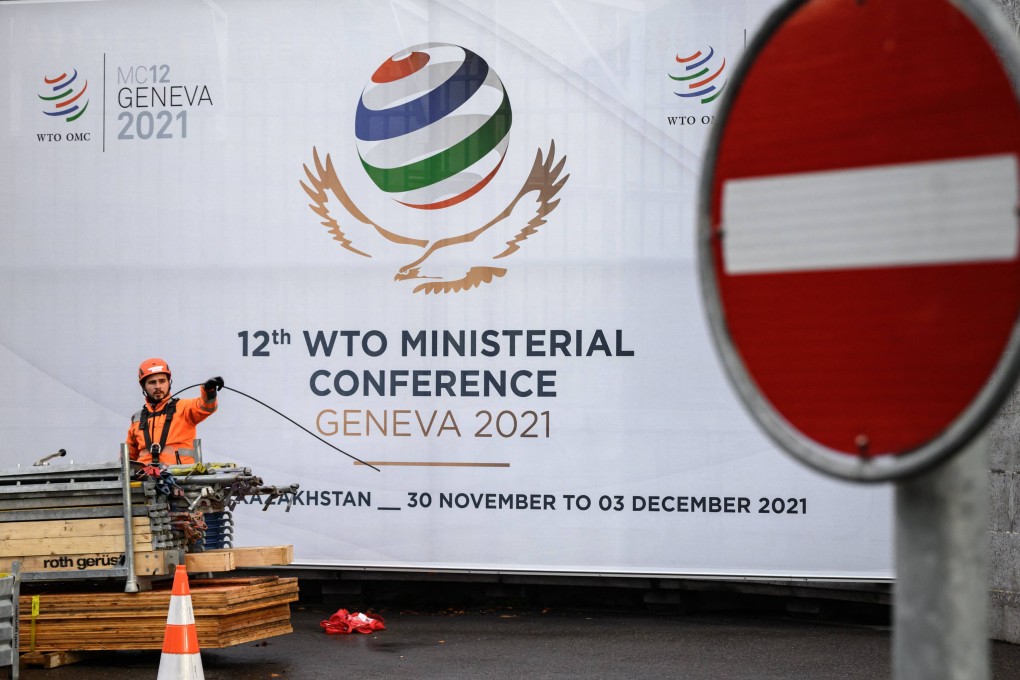Advertisement
Opinion | When WTO trade ministers finally meet, will they agree on anything?
- Even before the postponement of the 12th Ministerial Conference due to the Omicron variant, the WTO was facing major gridlocks on years-long debates
- To reach consensus on issues ranging from tackling climate change to providing Covid-19 vaccines, deep-seated changes are needed within the organisation
Reading Time:3 minutes
Why you can trust SCMP

The World Trade Organization was supposed to have gone into critical talks this week at the 12th Ministerial Conference in Geneva. The conference, slated for November 30 to December 3, would have been the first since 2017.
A last-minute postponement of the in-person meetings due to the new Omicron variant has compounded the WTO’s woes. Even before the postponement, countries were already bracing themselves, with a crowded agenda and deep divisions on major issues.
It is not certain when the in-person meetings will resume. When they do, the odds will remain stacked against significant breakthroughs. To begin with, there has been no major agreement since the 2015 ban on agricultural export subsidies, leading some observers to warn that this is a make or break moment for an organisation that has succumbed to gridlock.
Director general Ngozi Okonjo-Iweala was hoping for “at least one or two” tangible outcomes. Southeast Asian countries had hoped that a plurilateral agreement on services would be one, as well as progress on e-commerce.
Advertisement
For United States Trade Representative Katherine Tai, addressing fisheries subsidies, pandemic response and WTO reform is overdue. Other countries highlight the need for more action on climate change and digital trade.
To compound matters, a looming North-South divide is obstructing progress; if not resolved, this could harm the institution irreversibly. The North-South split and the consensus requirement look likely to block a deal on waiving intellectual property (IP) rights for Covid-19 vaccines and drugs.
India and South Africa are leading a push for a temporary waiver. But the European Union is opposing the waiver, proposing instead reductions in export restrictions and expanding production under existing IP rules.
Advertisement
Select Voice
Select Speed
1.00x


